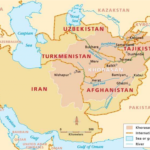Background
The entire world knows the Haqqani Group that operates in Afghanistan, supposedly with Pakistan Army support, but very few outside Pakistan know the other Haqqani Network. This Haqqani Network, consisting of Husain Haqqani, Christine Fair and Bruce Riedel, operates outside Pakistan to damage and weaken Pakistan’s armed forces and intelligence structure. This Haqqani Network is led by Pakistan’s former Ambassador to the United States, Husain Haqqani, who has written numerous books detailing his dislike, disapproval and disagreement with Pakistan’s military leadership. He was also implicated in a treason case while serving as Ambassador and has since refused to return to Pakistan to face the court. We will discuss the details of the treason case in this analysis to give further understanding to the background of this report.
On Friday, last week, The Hudson Institute issued a report titled, “A New U.S. Approach to Pakistan: Enforcing Aid Conditions Without Cutting Ties.” The report, packaged as a white paper outlining potential foreign policy and counter-terrorism opportunities with Pakistan, is a hatchet job against Pakistan’s armed forces and their top leadership. The report attempts to portray Pakistan as the aggressor in the Indian subcontinent, with an out-of-control military, dead set on creating a hegemony of their own.
Whether it is through the Taliban and Haqqani Group in Afghanistan who are “killing U.S. soldiers with the support of Pakistan’s armed forces,” or Lashkar-e-Jhangvi and Jaish-e-Muhammad, who are used to “keep India off-balance and bring international mediators to resolve the Kashmir dispute,” everything starts in either Rawalpindi or Aabpara according to the report.
We will be analyzing the major points and providing a clearer picture.
Syed Khalid Muhammad, the Founder and Executive Director of CommandEleven, brings over three decades of leadership experience, guiding organizations globally in the realms of security, technology, marketing, and management. Notably, he authored "Agency Rules: Never an Easy Day at the Office," a pioneering espionage novel published in 2013. This novel holds historical significance as the first English-language espionage novel written by a Pakistani, achieving international bestseller status and currently available on Amazon.
Furthermore, Syed Khalid Muhammad has made notable appearances on several international TV channels, providing insightful analysis on security and geopolitics.
Since the establishment of CommandEleven in 2015, Khalid has expanded his expertise to encompass analysis, risk and threat assessment, and consultancy in the fields of terrorism, counter-terrorism, counterintelligence, geopolitics, and cognitive warfare. Within CommandEleven, he has successfully cultivated a comprehensive human and electronic intelligence network spanning the Indian subcontinent. Continuously growing, this network extends into various conflict zones globally, providing CommandEleven with actionable, real-time intelligence that forms the foundation of its analytical endeavors.
CommandEleven currently serves multiple clients, including corporate giants, by assisting them in analysis related to security, threat assessment, and threat mitigation strategies in Pakistan and Afghanistan.









